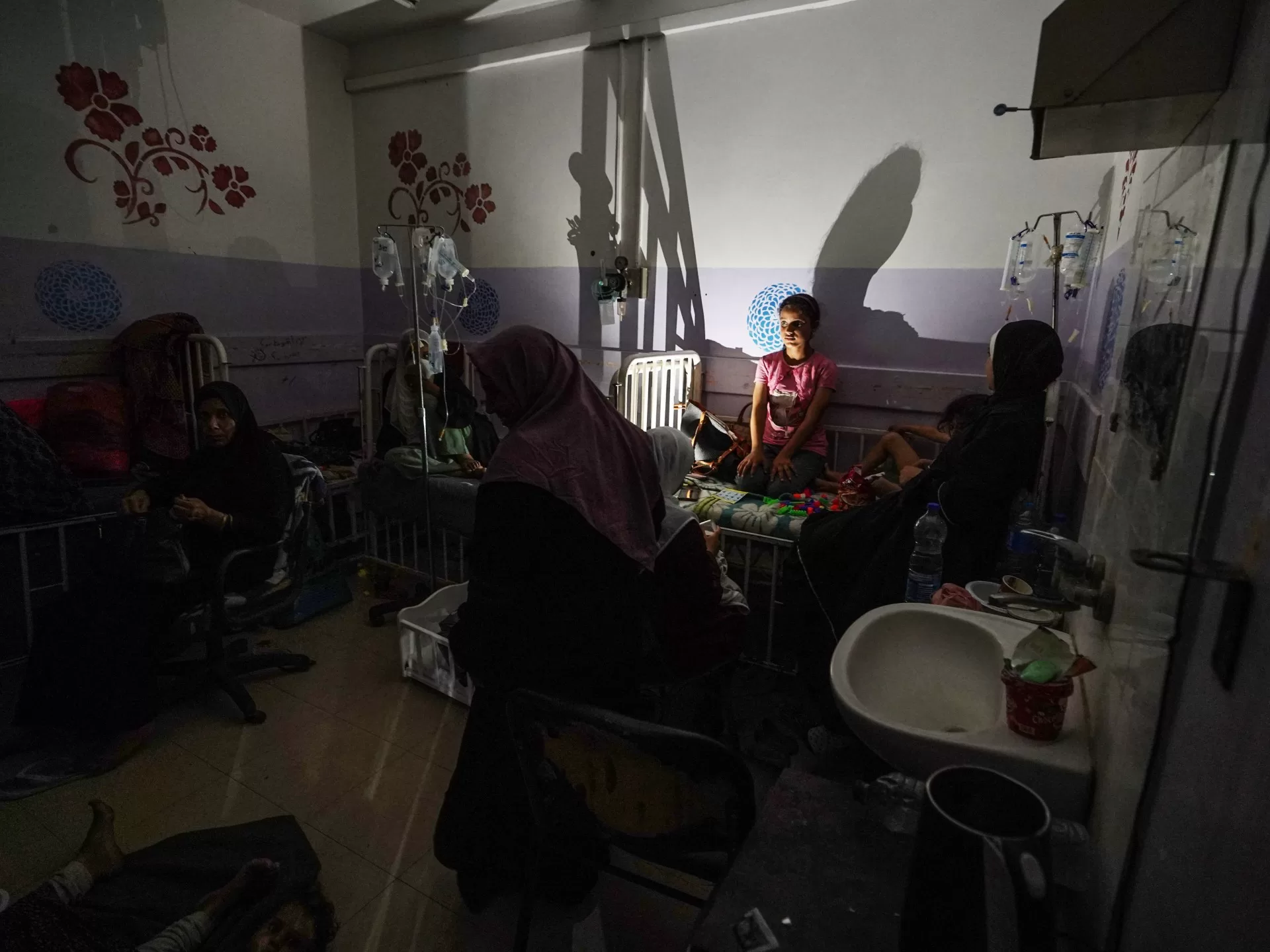Early on Friday, the hospital in Deir el-Balah received 15,000 litres (4,000 gallons) of fuel but that will only last a few more days, Al Jazeera’s reporters in Gaza said. Overnight, the shortage forced medical workers to work in an almost pitch-dark environment, with doctors using the light from their mobile phones while tending to premature babies.
“We have hundreds of patients including the injured and those that are diagnosed with kidney failure and need electricity for their dialysis treatment,” Iyad al-Jabri, Al-Aqsa’s medical director, said in a statement on Friday.
“All the patients will be condemned to death. Especially those in the ICU, the incubators and those relying on dialysis treatment,” he added.
The hospital requires more than 4,000 litres (1,000 gallons) of fuel each day to continue operations and care for patients. Al-Jabri said any help they can offer patients “will stop completely” without any fuel.
“We are calling on international organisations to send 50,000 litres [13,200 gallons] of fuel before there is an imminent crisis here,” he added.
Israel’s months-long siege of Gaza has either destroyed or left most hospitals out of service. Those that have remained open, including Al-Aqsa, are barely functioning with supplies of medicine and fuel almost running out amid an overflow of patients.
Israel’s destruction of Gaza’s healthcare system, as well as its denial of treatment for Palestinian patients, are considered war crimes according to legal experts and human rights groups. On Friday the International Court of Justice will make a ruling on Israel’s military offensive in Rafah after South Africa approached the court to order Israel to stop.
At Al-Aqsa, hospital spokesman Khalil al-Deqran told Al Jazeera that the medical staff there have resorted to manually operating some equipment to be able to treat patients.
“This crisis is all over the place. We suffer a lot because of this crisis,” al-Deqran said.
“This will lead to the death of so many sick and wounded people,” he said, adding that some patients are being attended to on the hospital floor due to lack of space and overcrowding.
Al Jazeera’s Tareq Abu Azzoum, reporting outside Al-Aqsa Hospital, described the situation as “getting dire” by the day.
Other hospitals targeted
While Al-Aqsa turned dark overnight, other hospitals in northern Gaza are also facing more severe threats due to Israeli bombardment.
Abu Azzoum reported that Kamal Adwan Hospital was twice hit by Israeli artillery overnight, while al-Awda Hospital was hit at least once. Both hospitals have been repeatedly hit by Israeli forces over the last few months.
“We’ve been hearing from medics in al-Awda Hospital that Israeli soldiers have been destroying everything, including hospital doors, as they use loudspeakers to order patients and their families to flee,” he said.
Some medics refused to leave until the Israeli military brought ambulances that could help patients in critical condition get to the western side of Gaza City, or at least to a place where they could get proper medical treatment.
Israeli forces have also reportedly targeted other areas in northern Gaza, hitting both al-Faluja area of Jabalia camp and the nearby al-Fakhoura area.
At least two people were also reported killed in az-Zawadya area of central Gaza.
Further south, the Israeli military is inching closer to the outskirts of the Shaboura area of the Rafah refugee camp, where rocket and artillery fire can be heard, according to Palestinian news agency Wafa.
Israeli military vehicles had also made their way towards Rafah’s densely populated Yibna area in the west.
Right outside Rafah, Israeli quadcopters are said to be hovering over the European Gaza Hospital, the largest operating hospital in southern Gaza.
